Can Cats Eat Watermelon?
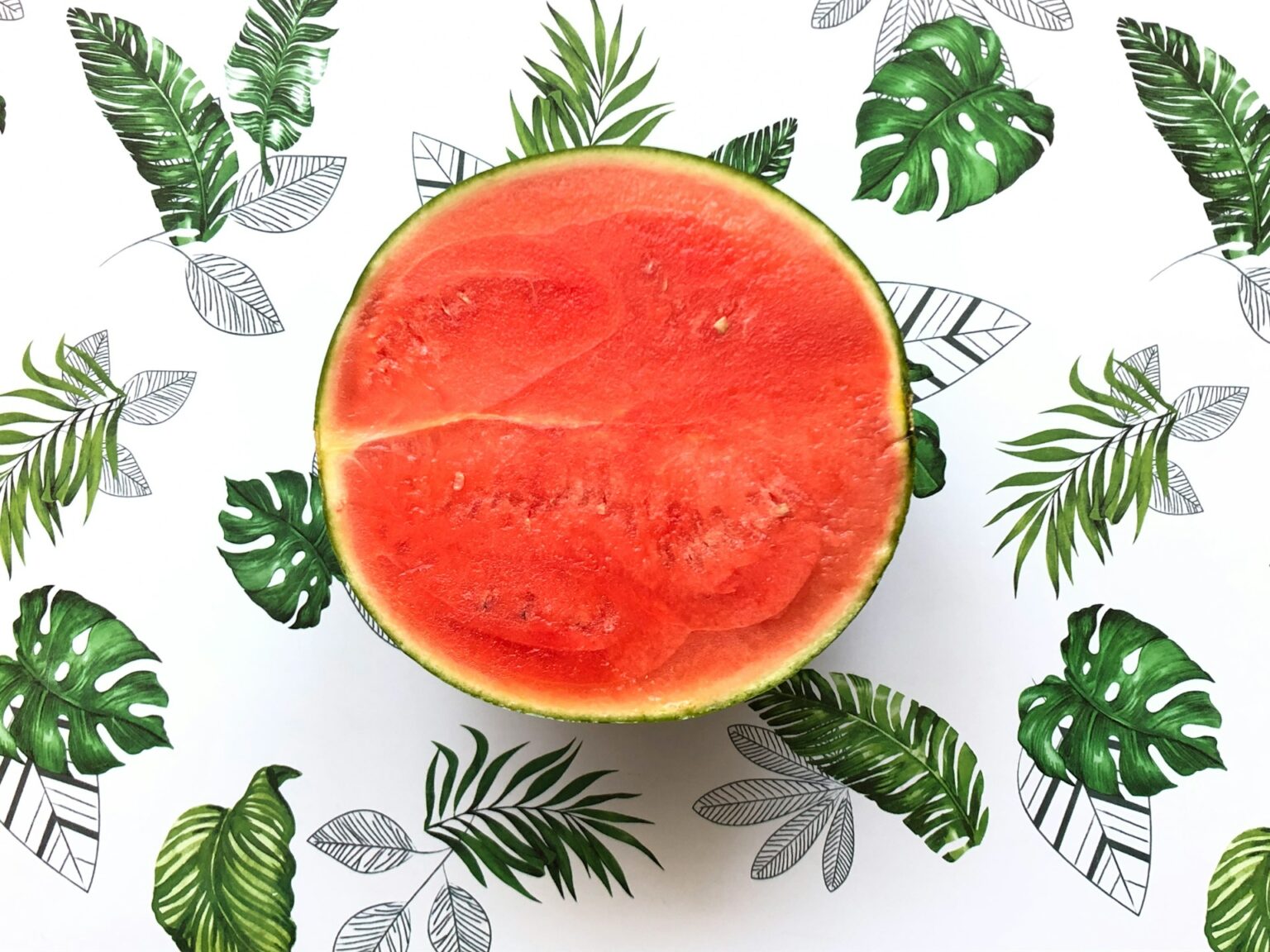
Cat owners must know what foods or plants are toxic for their cats. Particular plants could have elements deadly to felines. These are the plants we often have in our gardens or the kitchen. This is why being mindful is so important. Cats, in general, are more indifferent towards plants’ products. Due to their wild nature, their diet is mainly based on meat. But there are times when a cat wants to take a bite from a plant, whether out of curiosity or for whatever reason. But wait — what if that thing was a watermelon? Is watermelon harmful to our furry friends? Let’s find out and put them in a safe!
Is Watermelon Safe For Cats?
Not only does watermelon taste good, but it is also very good for your health. It is mostly made of water, so it is also good for hydration. It is packed with vitamins that serve many purposes, one of them being immune support. Watermelon is also a source of antioxidants such as lycopene, which may play a role in preventing several diseases. It is also low in calories, so there is no need to be concerned about gaining weight. It has so many benefits, but can cats eat watermelon too? Let’s get to the bottom of this question.
The watermelon is a non-harmful fruit for pets. This fruit has no harmful substances so that cats can eat watermelon. Therefore, nothing bad will happen if your cat eats a small amount of this fruit. But are watermelons healthy for cats? That’s another important question. Knowing how to feed your cat the watermelon correctly is also good.
How to Feed a Cat with a Watermelon?
Cats can eat watermelon only when the fruit is correctly prepared to prevent unwanted risks. Only watermelon flesh, utterly seeds-free, should be offered to cats. Watermelon seeds are tough and can be hard for their little mouths to chew on, and they could choke on them. The seeds also have cyanide, which is dangerous and poisonous for cats! So get rid of the watermelon seeds, making sure your cat doesn’t get to them. Furthermore, slice the pulp of the fruit into small chunks as well.
Give your cat watermelon in moderation. A few fruit pieces won’t hurt your cat, but excessive fruit can create issues. If your cat consumes excessive plant-based products, it will not receive the required nutrients. Also, cats have a challenging time with plant digestion. So too great an abundance of these harder-to-digest products can evoke digestive symptoms like vomiting or diarrhea.
Is Watermelon Healthy For Cats?
The first point we all already know is that cats can eat watermelon. But is this fruit healthy for them? Vegetables, fruit, and plant-based products are crucial components of our diet, particularly for humans. They are full of vitamins, minerals , and antioxidants. But what about cats? They are carnivores, so they have a poor diet, right? No! Cat bodies work very differently, so their needs are very different. Meat products provide every nutrient required for cats. The most crucial element of their diet is animal protein, which should serve as their food’s foundation. However, this does not imply that plant-based products do not have a place in the cat’s diet.
They can provide certain benefits, such as a bit of fiber in small quantities. The high water content of watermelon also offers a cat an opportunity to hydrate. Watermelons also help provide elements like vitamin A that are essential to cats. But cats have issues digesting plants, so it can be hard for them to absorb the nutrients. One of the possibly most important benefits of watermelon for cats is the carotenoids. These odd materials, often found in plants, provide their color. Watermelon is primarily high in lycopene, which is beneficial to immune support and has high antioxidant activity. Interestingly, these advantageous qualities of carotenoids have been utilized in animal feed to benefit cats and dogs.
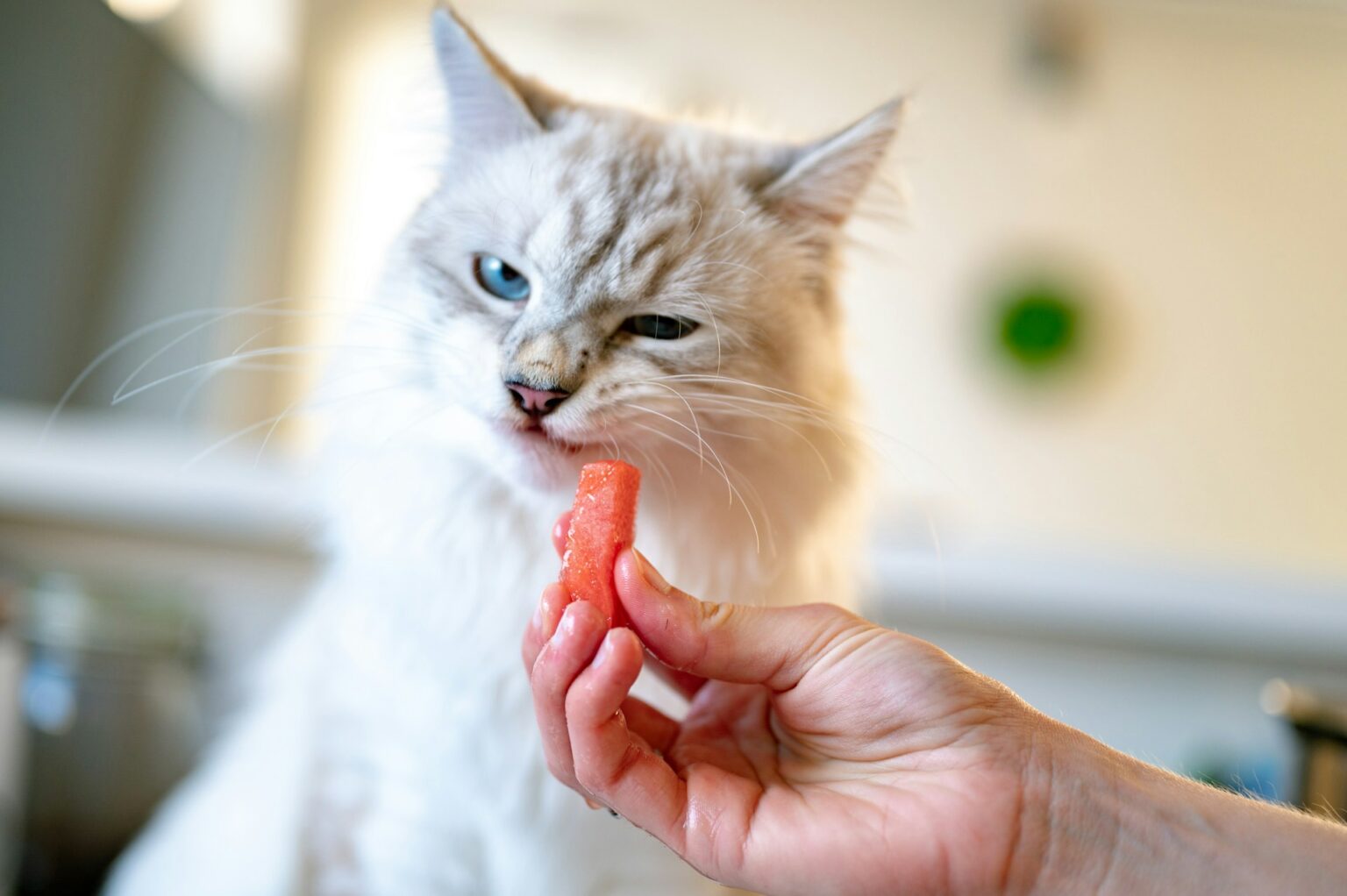
Summary
Cats can eat watermelon. The fruit should be seedless and without the peel. It should not be a regular meal or part of a cat’s diet but rather a special treat on occasion. Watermelon should not harm your cat in moderation; however, if you are still hesitant, you can always consult a vet just to be safe.
Source
- Anton C. Beynen (2019). Carotenoids in petfood.
https://www.researchgate.net/publication/337655570_Beynen_AC_2019_Carotenoids_in_petfood
